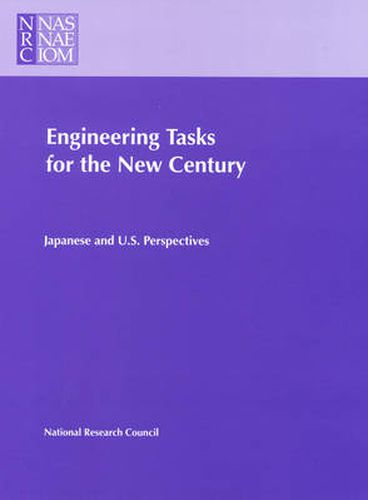Readings Newsletter
Become a Readings Member to make your shopping experience even easier.
Sign in or sign up for free!
You’re not far away from qualifying for FREE standard shipping within Australia
You’ve qualified for FREE standard shipping within Australia
The cart is loading…






The U.S.-Japan bilateral task force was tasked with addressing the following questions: (1) How do Japan and the United States educate and train engineers, and what are the major similarities, differences, and trends? (2) What are the superior practices that have been developed by each country, especially approaches that could be adopted by the other country? (3) Are there areas in which expanded U.S.-Japan cooperation could help to improve engineering education in the two countries and around the world?
The joint task force was organized by the Committee on Advanced Technology and the International Environment (Committee 149) of the Japan Society for the Promotion of Science (JSPS), and the Committee on Japan (COJ) of the National Research Council (NRC). Committee 149’s work was supported by member dues, and the COJ’s work was supported by the United States-Japan Foundation and the National Academy of Engineering. The joint task force was chaired by Mildred Dresselhaus of the Massachusetts Institute of Technology, and Sogo Okamura of Tokyo Denki University.
Japan and the United States are two of the leading nations in the world in engineering education and practice. Their systems for training and educating engineers display marked contrasts, resulting from the very different economic and cultural environments in which they have developed. The joint task force used a lifelong learning approach in examining the two countries’ systems, exploring differences and similarities in K-12 education of future engineers, undergraduate and graduate education, as well as continuing education of working professionals. The panel also explored two important issues that will affect engineering education in both countries in the future: the need to educate and train global engineers who can work effectively in international contexts, and the potential for information technology to transform engineering education in the future.
$9.00 standard shipping within Australia
FREE standard shipping within Australia for orders over $100.00
Express & International shipping calculated at checkout
The U.S.-Japan bilateral task force was tasked with addressing the following questions: (1) How do Japan and the United States educate and train engineers, and what are the major similarities, differences, and trends? (2) What are the superior practices that have been developed by each country, especially approaches that could be adopted by the other country? (3) Are there areas in which expanded U.S.-Japan cooperation could help to improve engineering education in the two countries and around the world?
The joint task force was organized by the Committee on Advanced Technology and the International Environment (Committee 149) of the Japan Society for the Promotion of Science (JSPS), and the Committee on Japan (COJ) of the National Research Council (NRC). Committee 149’s work was supported by member dues, and the COJ’s work was supported by the United States-Japan Foundation and the National Academy of Engineering. The joint task force was chaired by Mildred Dresselhaus of the Massachusetts Institute of Technology, and Sogo Okamura of Tokyo Denki University.
Japan and the United States are two of the leading nations in the world in engineering education and practice. Their systems for training and educating engineers display marked contrasts, resulting from the very different economic and cultural environments in which they have developed. The joint task force used a lifelong learning approach in examining the two countries’ systems, exploring differences and similarities in K-12 education of future engineers, undergraduate and graduate education, as well as continuing education of working professionals. The panel also explored two important issues that will affect engineering education in both countries in the future: the need to educate and train global engineers who can work effectively in international contexts, and the potential for information technology to transform engineering education in the future.